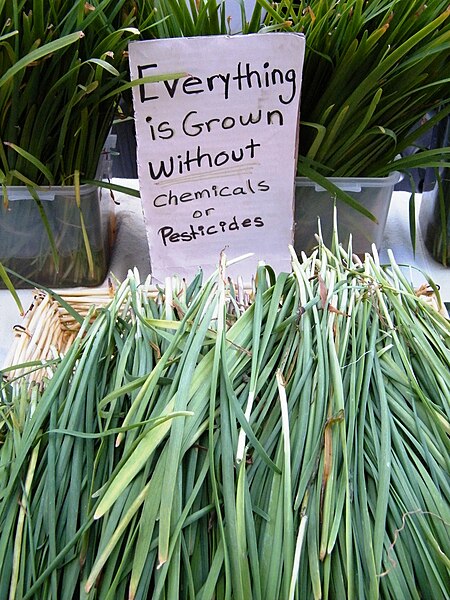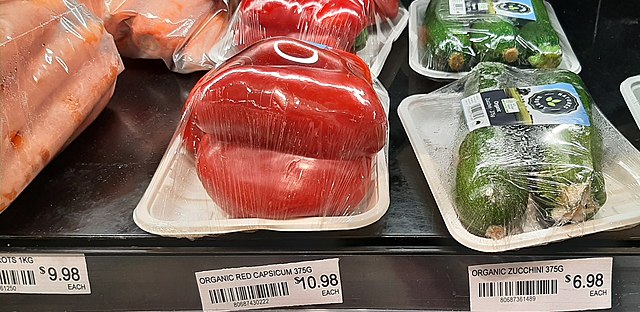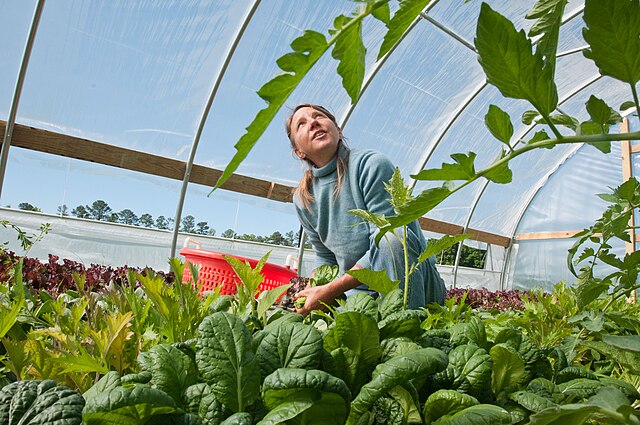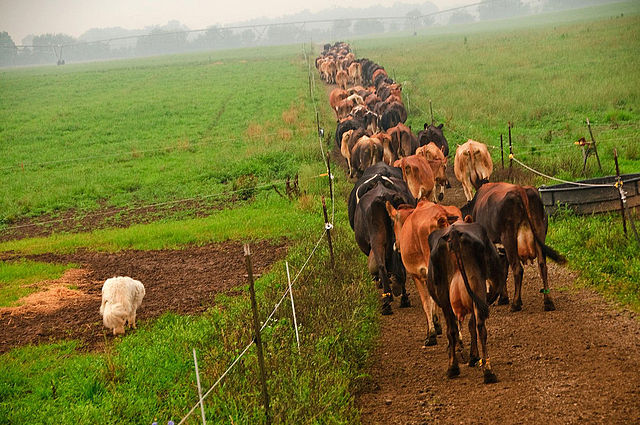Organic food, ecological food, or biological food are foods and drinks produced by methods complying with the standards of organic farming. Standards vary worldwide, but organic farming features practices that cycle resources, promote ecological balance, and conserve biodiversity. Organizations regulating organic products may restrict the use of certain pesticides and fertilizers in the farming methods used to produce such products. Organic foods are typically not processed using irradiation, industrial solvents, or synthetic food additives.
Organic produce at a farmers' market in Argentina
The National Organic Program (run by the USDA) is in charge of the legal definition of organic in the United States and does organic certification.
Organic vegetables at a farmers' market
Expensive organic vegetables at an Australian grocery store
Organic farming, also known as ecological farming or biological farming, is an agricultural system that uses fertilizers of organic origin such as compost manure, green manure, and bone meal and places emphasis on techniques such as crop rotation and companion planting. It originated early in the 20th century in reaction to rapidly changing farming practices. Certified organic agriculture accounts for 70 million hectares globally, with over half of that total in Australia. Biological pest control, mixed cropping, and the fostering of insect predators are encouraged. Organic standards are designed to allow the use of naturally-occurring substances while prohibiting or strictly limiting synthetic substances. For instance, naturally-occurring pesticides such as pyrethrin are permitted, while synthetic fertilizers and pesticides are generally prohibited. Synthetic substances that are allowed include, for example, copper sulfate, elemental sulfur, and veterinary drugs. Genetically modified organisms, nanomaterials, human sewage sludge, plant growth regulators, hormones, and antibiotic use in livestock husbandry are prohibited. Organic farming advocates claim advantages in sustainability, openness, self-sufficiency, autonomy and independence, health, food security, and food safety.
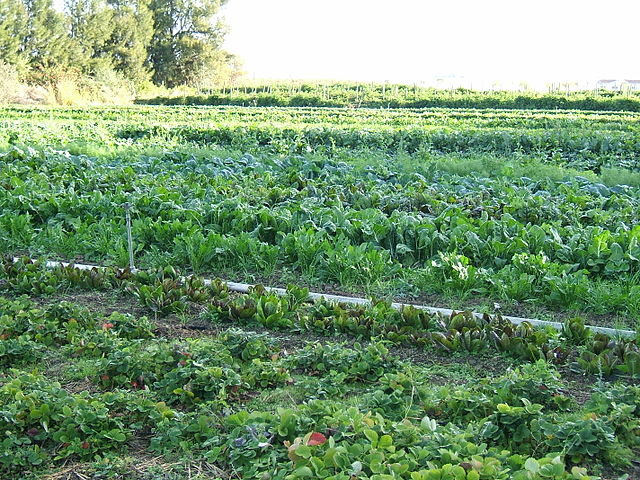
Organic cultivation of mixed vegetables in Capay, California
Organic farming in Virginia, USA.
Chloroxylon is used for pest management in organic rice cultivation in Chhattisgarh, India.
For livestock vaccines play an important part in animal health since antibiotic therapy is prohibited in organic farming.



